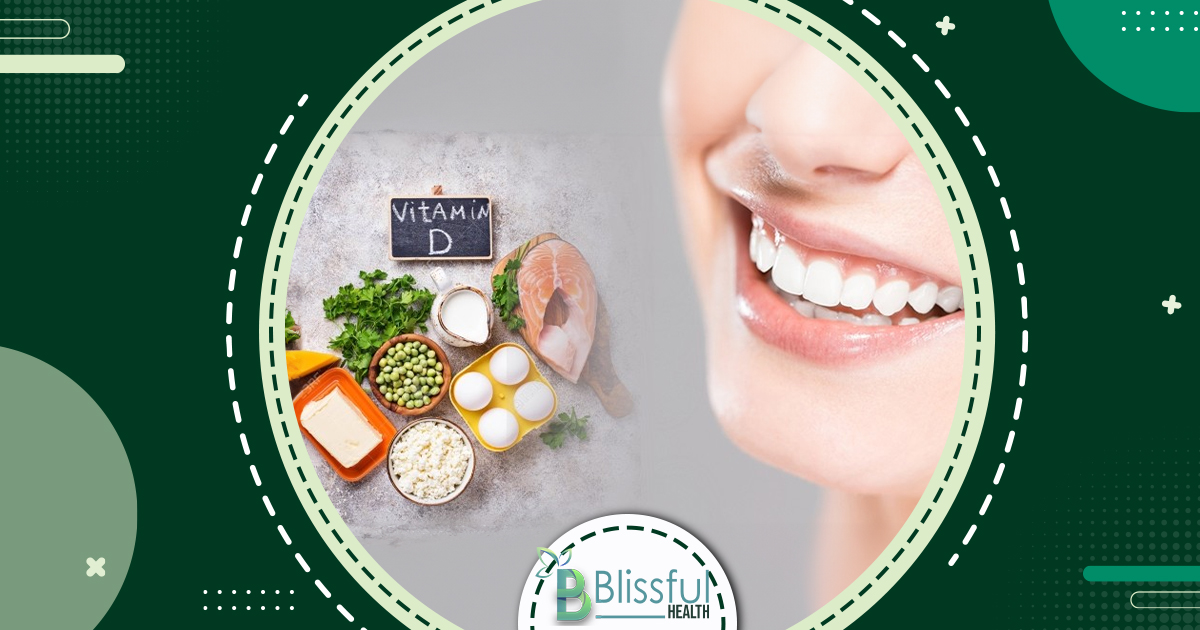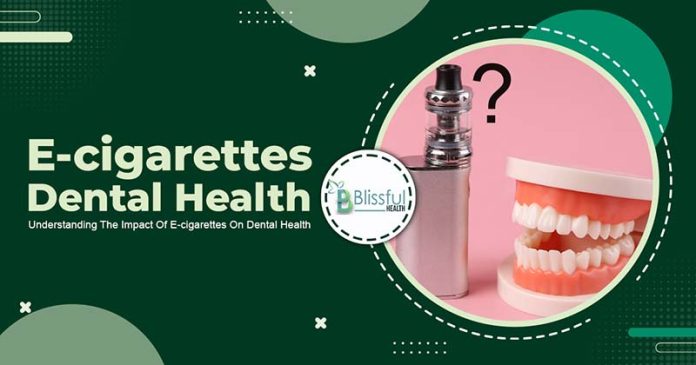Vaping is increasingly recognized as an alternative to traditional smoking, attracting millions of users globally because of its appeal as a seemingly safer option. However, despite its popularity, vaping is not without risks, especially with regard to oral health.
A lot of people, both young and old, use vaping thinking it’s harmless fun. So “Does vaping cause tooth decay?”. In fact, it can have serious consequences for your child’s gums and teeth, potentially leading to tooth decay. Find out now with Blissfulhealth in this article.
Does vaping cause tooth decay?
The health impacts of vaping are a hot topic, with arguments on both sides. While some tout it as a way to kick the cigarette habit, others warn of lung issues. But what about your pearly whites?
Regrettably, vaping can lead to tooth discoloration and stains. So, if you’re concerned about your dental health, it might be best to steer clear of vaping. In this blog, we’ll delve into how vaping affects your teeth and share some tips for maintaining their health.
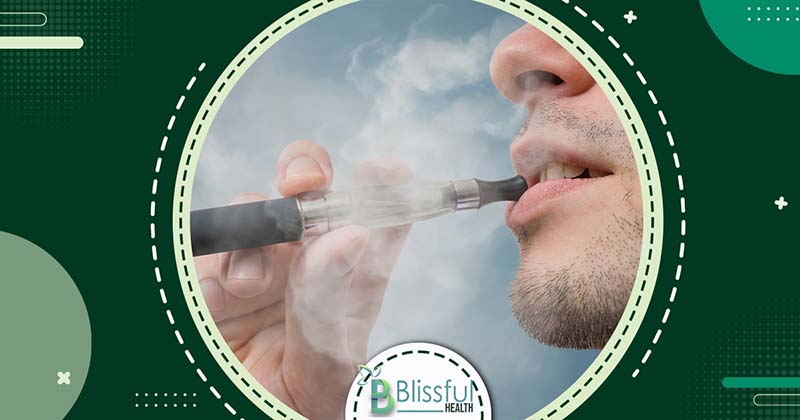
Does Vaping Result in Teeth Staining?
Vaping has the potential to stain your teeth. This happens because the nicotine present in e-cigarettes has a yellowish tint, which can stick to your teeth and gradually cause them to yellow. Additionally, the flavorings used in e-cigarettes can also contribute to tooth staining.
If you’re a regular vaper, you might start noticing your teeth taking on a yellowish tone. If the color of your teeth worries you, consider cutting back on vaping or trying a different type of e-cigarette.
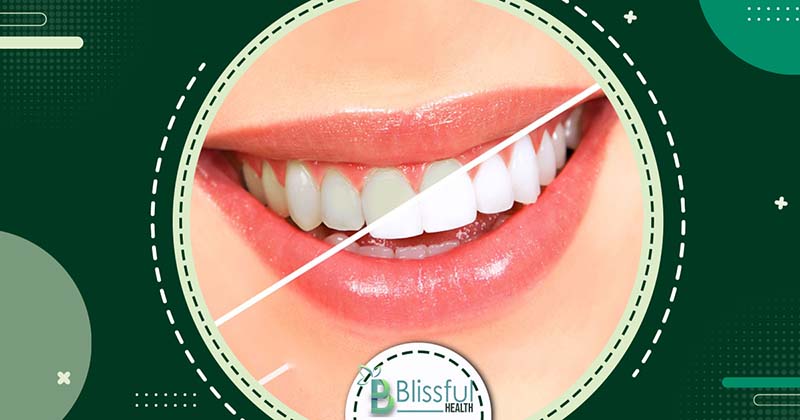
What Are the Potential Oral Health Risks of Vaping?
Since everyone knows the risks associated with smoking cigarettes, it’s no surprise that smokers looking for a “healthier” option have turned to vaping. This method of nicotine delivery uses electronic cigarettes to transform e-liquid or “vape juice” into an aerosol vapor for inhalation. The modern e-cigarette was developed by Hon Lik, a Chinese inventor motivated by the loss of his father to lung cancer, with the intention of helping smokers quit.
However, the idea of vaping as a harmless alternative to traditional tobacco, along with the appeal of enticing flavors, has sparked a concerning trend. Non-smokers, including a significant number of teenagers, have started using vaping products.
What Ingredients in Vape Can Contribute to Tooth Decay?
- Nicotine May Contribute to Gum Disease And Tooth Loss: Nicotine, even in smaller quantities found in vape juice compared to traditional tobacco, can still pose risks. It’s known to impede blood flow to the gums and disrupt the mouth’s natural defense mechanisms against infection. This increases the likelihood of gum disease and eventual tooth loss.
- Propylene Glycol Can Damage Enamel And Soft Tissue: A primary component of vape juice, propylene glycol (PG), is generally safe for ingestion and inhalation. However, when used orally, it breaks down into acids that can erode enamel. Additionally, it contains propionaldehyde, which irritates soft tissue. PG’s drying effect on the mouth reduces saliva production, leaving teeth vulnerable to cavities and gum disease.
- Vegetable Glycerin And Flavorings Can Promote Bacterial Adhesion to Weakened Teeth: Vegetable glycerin (VG), another common vape juice ingredient, acts as a sticky sweetener, facilitating the attachment of bacteria, particularly Streptococcus mutans, to tooth surfaces. When combined with flavorings, which are often appealing to younger vapers, VG significantly increases microbial adhesion and biofilm growth. Moreover, flavorings weaken tooth enamel, making it more susceptible to decay.
Understanding these ingredients’ effects underscores the importance of oral hygiene and regular dental check-ups for vapers.
Smoking Vs Vaping: Which Is Worse for Your Oral Health?
Although vaping is often believed as a safer alternative to smoking tobacco, both habits can severely affect oral health. Issues range from tooth discoloration and increased plaque buildup to reduced saliva production and greater risks of gum disease, cavities, and tooth loss. Changes in the mouth’s bacterial environment due to vaping can lead to various problems.
Additionally, it’s important to recognize that the full impact of vaping on oral health is not yet fully understood. Ongoing research and a variety of studies continue to explore the effects of vaping, suggesting that more detailed insights into the potential harms of vaping are still to be discovered.
While 38% of Britons believe smoking cigarettes poses greater health risks than vaping, the truth is, e-cigarettes and vapes haven’t been in widespread use long enough for medical professionals to comprehensively evaluate their risks. Nevertheless, the established risks already identified paint a troubling picture for individuals prioritizing oral health.
How to Prevent And Reduce the Harmful Effects of Vaping on Teeth
Vaping might not be the best for your teeth, but there are steps you can take to mitigate the damage.
- Cut Back or Quit Vaping: If you’re worried about vaping’s impact on your teeth, reducing or quitting altogether is your best bet. It might be tough, especially if you’re addicted to nicotine, but it’s worth it for your dental health.
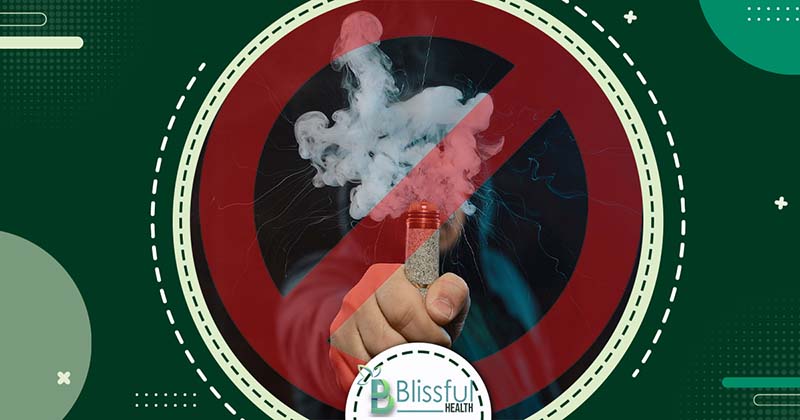
- Opt for a Soft-Bristled Toothbrush: When brushing, choose a toothbrush with soft bristles. This helps prevent damage to your teeth and gums.
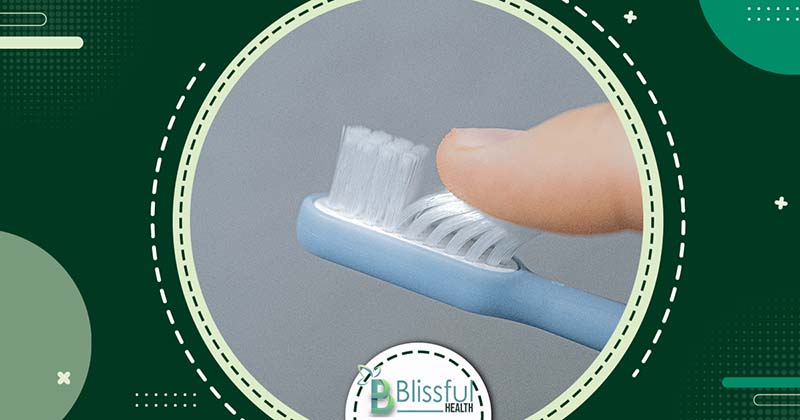
- Maintain Regular Oral Hygiene: Brush your teeth and floss regularly to remove any nicotine or other residues. Regular brushing also helps maintain tooth health and prevents discoloration.
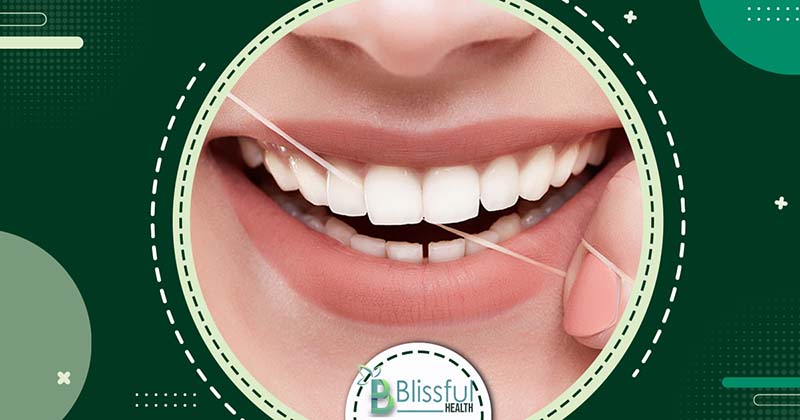
- Schedule Regular Dental Checkups: Make sure to visit your dentist for routine checkups and cleanings. This helps keep your teeth healthy and prevents potential issues. Some dentists even offer specialized services for vapers, so inquire about this during your appointment.
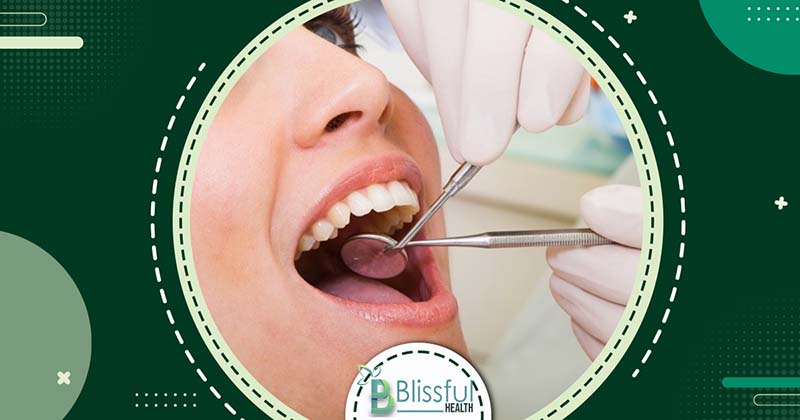
- Consider Nicotine-Free E-Cigarettes: If you continue vaping, opt for e-cigarettes that are nicotine-free. This can help prevent tooth discoloration and other nicotine-related dental problems.
By implementing these strategies, you can minimize the harmful effects of vaping on your teeth and maintain better oral health.
Conclusion
Vaping poses risks to your teeth and gums, underscoring the importance of quitting smoking, vaping, and any use of nicotine or tobacco products. However, for those who use vaping as a step toward quitting smoking, it may offer some benefits, as e-cigarettes are generally considered less harmful.
No matter your vaping habits, maintaining oral health should be a priority. Brushing your teeth twice a day, flossing daily, using fluoride toothpaste, and keeping up with regular dental check-ups are essential actions to protect your teeth from the negative effects of vaping.
By taking active steps, you can maintain your oral health and address concerns like “Does vaping cause tooth decay?” while dealing with the challenges that come with vaping.
